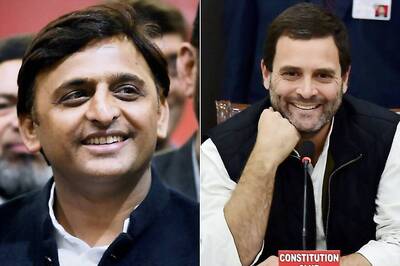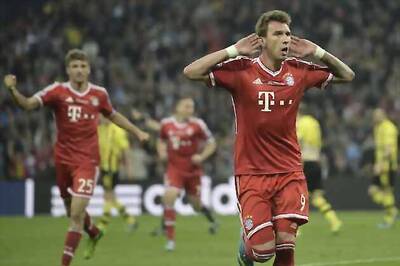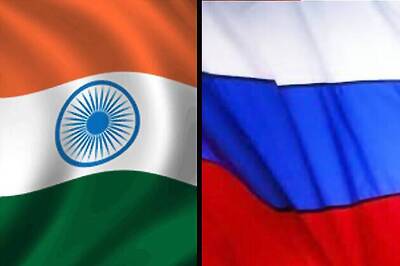
views
What is the Fruit Loops Mandela Effect?
The Fruit Loops Mandela Effect refers to people misremembering “Froot Loops” as “Fruit Loops.” With this Mandela Effect, people claim that they remember the popular fruity cereal being spelled “Fruit Loops” rather than “Froot Loops.” Although it’s always been spelled “Froot Loops,” some believe that we’ve entered a new timeline or that a secret conspiracy instigated the name switch. The more likely cause is the Mandela Effect, which is a psychological phenomenon where multiple people misremember the same thing. There has been nothing to confirm that we’ve entered a new timeline or that there’s a secret Froot Loops conspiracy happening beneath your nose. Branding and packaging have always referred to the cereal as “Froot Loops.”
Potential Reasons for People Misremembering
The rumor has spread so much that people just misremember the name. The Fruit Loops Mandela Effect is a popular topic of discussion, and that popularity may be causing people to misremember the cereal’s name. This is due to something called the illusory truth effect, which is the tendency for a statement that’s regularly repeated to acquire a ring of truth, no matter how true or untrue it actually is.
The generic versions of the cereal use the word “fruit” on the box. While the original Froot Loops cereal has always used the “froot” spelling, all of the generic versions of the cereal use the word “fruit,” from Fruit Spins and Fruit Swirls to Kroger Frosted Fruity Os and Trader Joe’s Fruity O’s. Other fruit-based snacks and foods also use the “fruit” spelling, which could be the cause of the Fruit Loops Mandela Effect.
No other fruit product uses the “froot” spelling, so "froot" seems wrong. There are plenty of “fruit” products on the market that aren’t actually fruit, like Fruit by the Foot and Tootsie Roll Fruit Chews. The difference between these products and Froot Loops (besides the texture) is that Froot Loops is the only one that uses “froot” instead of “fruit,” which could cause people to conflate the two and misremember the cereal’s name.
The two words look similar, which could cause some confusion. While they’re technically two different words, “froot” and “fruit” only have two letters of difference. For those who haven’t had Froot Loops since they were children, the similarity between the words and passage of time could be the cause for misremembering, as the brain could be trying to fill in the gaps and miss the mark.
What is the Mandela Effect?
The Mandela Effect is a phenomenon where a large group of people incorrectly remember the same detail. These specific details are often thought about a person, place, situation, or event that was once thought to have been reality but was unexpectedly switched. The misremembering tends to be genuine and on a wide scale, making groups of people confuse facts and fiction. One of the most popular examples of the Mandela Effect is Darth Vader’s reveal to Luke Skywalker in Star Wars: Episode V. In the film, Darth Vader said, “No, I am your father,” but many people believe he said, “Luke, I am your father.”
Where does the Mandela Effect come from?
The Mandela Effect was coined by Fiona Broome in 2009. Broome, a paranormal consultant, came up with the term after she misremembered the death of former South African President Nelson Mandela in the 1980s, despite his actual death in 2013. He was in prison at the time, but Broome and others believed that he had passed, inspiring the first Mandela Effect.
Why does the Mandela Effect happen?
The Mandela Effect occurs because of the brain’s ability to form false memories. According to therapist Rebecca Tenzer, MAT, MA, LCSW, CCTP, CGCS, CCATP, CCFP, “People fall for the Mandela Effect because human memory is far less reliable than we like to believe.” Human brains tend to fill in gaps, reshape memories, and adjust facts to help make sense of reality, resulting in the Mandela Effect. Tenzer says, “Over time, repeated exposure to incorrect information through media, conversations, or cultural references can cement that false memory until it feels absolutely real.” Some people believe the Mandela effect occurs because we’ve unknowingly jumped timelines. As fun as that idea sounds, there’s no evidence that we can or have jumped timelines.
Other Mandela Effect Examples
Chic-fil-A vs. Chick-fil-A The Chick-fil-A Mandela Effect claims that the popular chicken-based fast food chain was spelled “Chic-fil-A” or “Chik-fil-A” rather than “Chick-fil-A.” Despite the number of people who claim to have remembered the previous name, there is no evidence that the fast-food chain was named anything besides “Chick-fil-A.”
Fruit of the Loom Cornucopia The Fruit of the Loom Mandela Effect claims that the Fruit of the Loom logo used to feature a cornucopia, but the brand says they never have. This is one of the older Mandela Effects, going all the way back to 1973, when Frank Wess released a jazz album titled Fruit of the Loom with a fruit cornucopia on the cover.
Monopoly Man’s Monocle The Monopoly Man’s Monocle Mandela Effect claims that the Monopoly Man from the popular board game, Monopoly, wore a Monocle in the Monopoly branding and merchandising. Although he never wore a monocle in the original game, Mr. Monopoly did wear one on the notes in a European version of Monopoly Jr. and a Monopoly Facebook post.
Robber Emoji The Robber Emoji Mandela Effect is an effect where people believe that there was once an emoji of a robber who wore a black mask and striped shirt with a beanie and a bag of money. Although some people believe that it came from the Bitlife video game or The Emoji Movie, the robber emoji has never existed.
Mandela Effect Quiz
Test your Mandela Effect knowledge with the wikiHow quiz. If you’re an expert on different Mandela Effects or you’re interested in learning more about them, take our Mandela Effect Quiz. The 16-question quiz challenges you on different Mandela Effects to see how well you remember them. Do you think your memory will prevail? Take the Mandela Effect Quiz here.



















Comments
0 comment